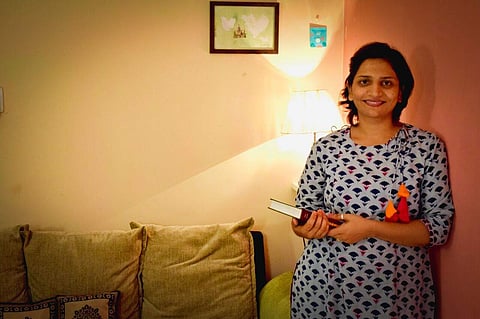

That the intermediate education system in the state is rife with issues is no secret. However, the events that followed this year’s intermediate results threw up grave questions about the standards maintained within the Board and the institutions. Every result is marked by at least a handful of disheartened students ending their lives. But for 20 students in a state to commit suicide over exam results is both unprecedented and highly unnerving.
We’ve all been aware of the fact that most intermediate institutions are highly commercialised, and put immense pressure on students to gain the best of ranks. Add to that the inevitable pressure from parents in most cases, and it’s not really surprising that the +2 years are becoming the most dreaded years of a student’s academic life. With this in mind, we ask a few psychologists based in Hyderabad about the avenues that students can take to deal with the stress, and take care of their mental health.
Dr Pooja Jha (Total Solution): Stress and anxiety are crossing a limit in intermediate students, putting lives at risk. There are predisposed characteristics that exist in the students right from the start but are unfortunately not identified by the parents and the teachers--sensitivity to failure, inability to cope with criticism, difficulty in enjoying the process, and inability to prioritise work/academic, social and personal lives. Such issues affect their socialisation skills also, and they struggle to reach out in times of distress. Something that can help is the “buddy system.” For example, each classroom may have four to five students who are identified to have self-regulation, are responsible, and have a balanced state of mind. There can be a one-day training programme for these students to teach them to identify students who may be facing difficulties. They can be trained on basic mental health concepts, and they can help others deal with issues such as internalising stress. They can identify students who have an unhealthy lifestyle, and work together with them to help improve it. Honestly, for a child going through these difficulties, it’s easier to talk to one’s peers rather than parents and teachers. Friends help look at life from a different perspective. They often distract us from what’s preying on our minds. Listening is important. It provides students with security
3 tips:
Reward system for passing. Each student does their best in their capacity. They should be recognised for that.
Have a mental health professional compulsorily on campus. Put a procedure in place for their functioning.
Frequent mental health awareness campaigns in schools and classrooms. Remove stigma around reaching out in times of distress by normalising it in conversation.
Aarthi Selvan (Pause for Perspective): In my experience, teens can be one another’s best support system if a context is provided to care for each other. Identify your support person in the group and reach out to that person when you’re not feeling well enough. Talk it out. Or just spend the day together doing activities that help one relax, such as painting. The fact is that students are sometimes under constant pressure to be someone they’re not. Our culture is to peg one side against the other and give the child an example of someone else who is doing better. No matter if they’re struggling with academics, or are actually above average students, kids are looking at someone else, instead of focusing on what they are good at. Teens are extremely vulnerable to that because they don’t fully know themselves yet. It creates a negativity spiral between children, but that can be combated if an environment of mutual sharing is created. In this sense, group therapy helps students realise that they’re not alone.
3 tips:
Do away with weekly exams. There has to be another way to learn. Weekly exams apply a lot of pressure on the teens.
We need to trust our teens to be more responsible instead of spoon feeding them responsibility. Giving them space to grow and learn on their own would help build self-motivation.
More choices or variety in what they can study at the intermediate level. More options around electives make learning fun.
Neha Ranjan (Roshni Counseling Centre): Students are conditioned to look only at their own studies and nothing else. Even when they spend hours together in the same class, they have very little opportunity to bond with each other. Institutions thrive on stimulating competition. But they take it to such extremes that the students feel burdened and isolated. They also develop self-esteem issues that last well into their adult life. Simply allowing the students to spend more time with each other in a comfortable class environment, where they can play games or talk to each other can help spot and prevent extreme cases. Institutions, teachers, and parents need to humanise their approach to the way they treat students at the intermediate stage. The mindset that suffering for two years will yield great results going forward is erroneous, and severely damages the child’s willpower and motivation.
3 tips:
Cut down on the number of hours of coaching. Have more than just one day off in a week.
Relax the “no-absenteeism” policy. Allow students to have a life outside of school.
Have a period or two of relaxing activities between school hours.
